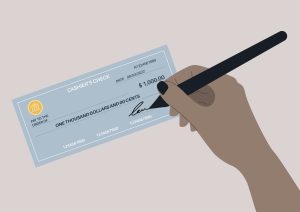
Read on to learn more and then contact PLBH at (800) 435-7542 if you need to speak to an employment law attorney who might be able to help you with your workers’ compensation claim.
When do payments for workers’ compensation benefits start?
The specific benefit will determine when workers’ compensation benefits start to be paid. Benefits from workers’ compensation fall into two categories: medical costs and benefits for disabilities. Medical expenses frequently start to pay off right away.
In many states, there are four categories for disability payments: benefits for temporary partial disability, temporary complete disability, permanent partial disability, and permanent total disability.
Payment will start when the damage results in a disability, whether partial or total. On the other hand, temporary benefits start to pay off right away following the harm or impairment. Permanent benefits replace temporary ones if the employee is unable to recuperate fully. The specifics will vary by state because each has its own workers’ compensation system.
Medical care is generally covered right away
The workers’ compensation statute does typically cover an injured worker’s medical care right away. These workers’ compensation benefits could start to be paid out even before the worker submits a claim.
When an employee is harmed at work, they can tell their employer and make an appointment with the doctor right away. A small network of doctors is available for workers’ compensation claims in many jurisdictions.
Injured employees can inform their doctor at the office that they want to submit a workers’ compensation claim. After that, the physician will send the invoice to the employer or the workers’ compensation insurance provider.
In the majority of states, even if the claim is later rejected, employers or their insurance will pay the bill. Some jurisdictions will even pay for the mileage injured workers must travel to and from the doctor’s office.
Disability payments can take longer to come through
Benefits for temporary disability are only paid upon the acceptance or approval of a workers’ compensation claim. It may take as little as two weeks or up to a month to complete. The period is determined by the state and if the insurer is permitted to ask for a delay. The majority of states additionally call for a doctor’s note attesting to the worker’s inability to work. These temporary payments will eventually be replaced by permanent disability benefits if the worker does not fully recover.
The insurance company will look into the situation after a workers’ compensation claim has been made. This investigation’s findings will reveal if the incident was truly a work-related injury, the severity of the injuries, and whether the insurer will pay for them.
After the date of the injury, workers’ compensation insurers have a specific period of time to carry out this examination. States have different time limits, and there might be significant exceptions.
Insurers may ask for more time in some states so they can finish their inquiry. For instance, insurers in California have 14 days to look into a claim. To finish the inquiry, they may ask for a delay of up to 90 days. However, they are still required to pay medical benefits throughout that waiting period.
State law may punish the insurer or mandate that they accept the claim if they don’t finish the inquiry within the allotted time frame.
